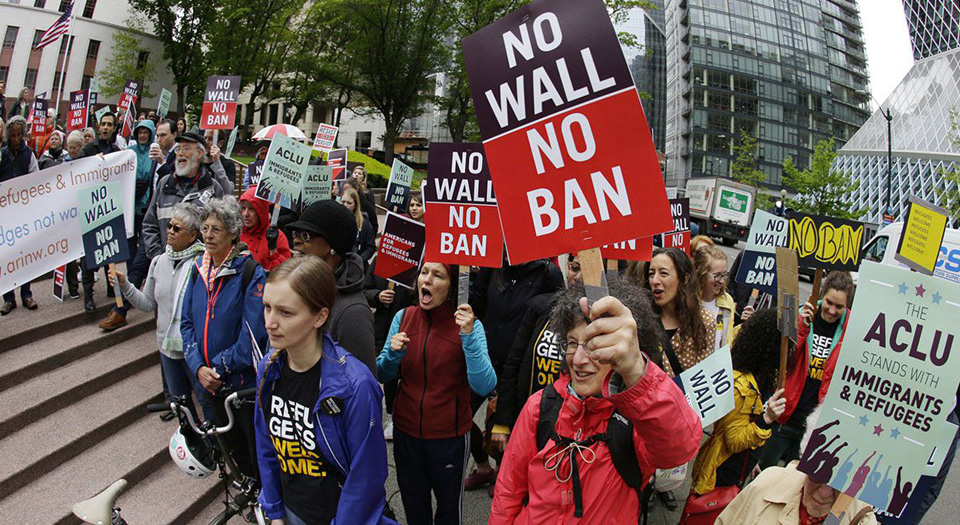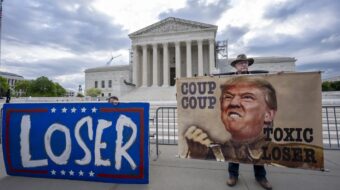
U.S. District Judge Derrick Watson of Honolulu, Hawaii, handed challengers of President Trump’s travel ban a legal victory late Thursday, July 13, by expanding the definition of ‘close relative’ to include: grandparents, grandchildren, brothers-in-law, sisters-in-law, aunts, uncles, nieces, nephews, and cousins of persons in the United States.
Last month, The Supreme Court ruled that the travel ban could take effect, but that anyone from the six countries with at ‘bona fide relationship’ to a U.S. person or entity could not be barred from entering.
The Trump administration interpreted the Supreme Court’s opinion to only allow spouses, parents, children, fianćes, and siblings into the country. This interpretation led the state of Hawaii to ask the district court to narrow the Supreme Court’s definition.
Criticizing the administrations definition of a close relative as “unduly restrictive,” Watson, in his opinion, wrote, “Common sense, for instance, dictates that close family members be defined to include grandparents. Indeed, grandparents are the epitome of close family members.”
The new ruling also offers hope to refugees with close relatives in the U.S., and they should now be able to enter despite Trump’s 50,000 cap on refugee admissions for the year was reached earlier this week.
The ruling also clarifies that a refugee’s ties to a U.S. resettlement agency met the standard of ‘bona fide relationship’ to an entity, set by the Supreme Court.
“An assurance from a United States refugee resettlement agency, in fact, meets each of the Supreme Court’s touchstones,” Watson wrote. “It is formal, it is a documented contract, it is binding, it triggers responsibilities and obligations, including compensation, it is issued specific to an individual refugee only when that refugee has been approved for entry by the Department of Homeland Security.”
Hawaii’s attorney general, Douglas Chin, said the ruling meant the government could not ignore the “scope” of the Supreme Court decision.
“Family members have been separated and real people have suffered enough. Courts have found that this Executive Order has no basis in stopping terrorism and is just a pretext for illegal and unconstitutional discrimination.”
Watson did not grant all of the state’s requests, rejecting to exempt all Iraqis refugee applicants who believe they are at risk due to their work for the U.S. government, and an exemption for those eligible to apply to a refugee program aimed at protecting at-risk children in El Salvador, Honduras, and Guatemala.
Attorney General Jeff Sessions announced early Friday, July 14, that the Trump administration will appeal directly to the Supreme Court, bypassing the U.S. 9th Circuit Court of Appeals, who has previously ruled against the travel ban.
“Once again, we are faced with a situation in which a single federal district court has undertaken by a nationwide injunction to micromanage decisions of the co-equal executive branch related to our national security,” Sessions said. “By this decision, the district court has improperly substituted its policy preferences for the national security judgments of the executive branch in a time of grave threats.”
You can read the full opinion here.












Comments